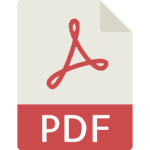Filter by Price
Filter by: FILE TYPE
Product Liability Lawsuit – Federal Court Civil Complaint and Jury Demand
Federal Court Civil Complaint, including claims for Strict Liability, Product Liability-Failure to Warn, Negligence, Breach of Warranty- Express and Implied, Fraud, Fraudulent Concealment, and Negligent Representation.
Product liability is the area of law in which manufacturers, distributors, suppliers, retailers, and others who make products available to the public are held responsible for the injuries those products cause.
Product Defects: Responsible Parties
For product liability to arise, at some point the product must have been sold in the marketplace. Historically, a contractual relationship, known as “privity of contract,” had to exist between the person injured by a product and the supplier of the product in order for the injured person to recover. In most states today, however, that requirement no longer exists, and the injured person does not have to be the purchaser of the product in order to recover. Any person who foreseeably could have been injured by a defective product can recover for his or her injuries, as long as the product was sold to someone.
Liability for a product defect could rest with any party in the product’s chain of distribution, such as:
-The product manufacturer;
-A manufacturer of component parts;
-A party that assembles or installs the product;
-The wholesaler; and
-The retail store that sold the product to the consumer.
Answer to Title VII Complaint
Defendants answer to complaint for title VII
Complaint for Age Discrimination
Age discrimination involves treating an applicant or employee less favorably because of his or her age.
Complaint in Federal court for age discrimination:
To establish an age discrimination claim, plaintiff must show that:
–she was older than 40;
–she was discharged;
–she was qualified for the job and met the defendant’s legitimate expectations; and.
–her position remained open or was filled by a similarly qualified individual who was substantially younger.
An average out of court settlement is about $40,000. In addition, 10 percent of wrongful termination and discrimination cases result in a $1 million dollar settlement. The majority of cases, about 67 percent, are ruled in the plaintiff’s favor when taken to litigation.
What are grounds for age discrimination?
The employee, at the time of the act alleged to be discriminatory, is 40 or older; The employee is qualified for their job position; The employee experiences an adverse employment action; Adverse actions include actions such as demotions, firings, or changes to the terms, conditions or privileges of employment); and.
Complaint for Fair Labor Standard Act – Ohio
1. the Fair Labor Standards Act (“FLSA”), 29 U.S.C. §201, et seq., the Ohio Minimum Fair Wage Standards Act, O.R.C. Chapter 4111 (“the Ohio Wage Act”), the Ohio Prompt Pay Act, O.R.C. § 4113.15 (“OPPA”), and 28 U.S.C. §1331.
Complaint for Injunctive Relief & Damages Discrimination
RETALIATORY DISCHARGE IN VIOLATION OF THE FAMILY AND MEDICAL LEAVE ACT, WRONGFUL TERMINATION BASED ON DISABILITY DISCRIMINATION, FAILURE TO PROVIDE REASONABLE ACCOMMODATION
Motion to Release Funds Held in Court Registry
MOTION TO RELEASE FUNDS HELD IN COURT REGISTRY
Plaintiff Trial Brief
Plaintiff Trial Brief on premise claim with insect removal
Plaintiff’s Brief Regarding Interest Rate on Promissory Note
PLAINTIFFS’ BRIEF REGARDING INTEREST RATE ON PROMISSORY NOTE
Plaintiff’s Objection and Request for Hearing on Defendant’s Motion for Fees and Bill of Cost
PLAINTIFFS’ OBJECTION AND REQUEST FOR HEARING ON DEFENDANTS’ MOTION FOR FEES AND BILL OF COSTS
Defendant’s Motion for Attorney Fees and Costs
DEFENDANTS’ MOTION FOR ATTORNEY FEES AND COSTS
Plaintiff’s Brief in Support of Motion for Temporary Injunction and Expedited Discovery
Plaintiff’s Brief in support of motion for temporary injunction and expedited discovery, from the US District Court for the District of Minnesota. Companion Objection to same, as well as the original complaint, available on Lawyers Help Lawyers as well.
Federal Civil Complaint for Default on Promissory Note
Federal Civil Court Complaint for default on a promissory note. Diversity case out of the US District Court for the Eastern District of Michigan.
Federal Civil Complaint for Copyright Infringement
Federal Civil Complaint for violation of copyright.
As a general matter, copyright infringement occurs when a copyrighted work is reproduced, distributed, performed, publicly displayed, or made into a derivative work without the permission of the copyright owner.
Copyright infringement can be a felony or a misdemeanor. A felony charge must involve an infringement of the copyright owner’s reproduction or distribution rights. A felony conviction carries a maximum sentence of five years in prison and a maximum fine of $250,000.
Copyright infringement is using someone else’s work without getting that person’s permission. … The owner of a copyright gets to decide who can legally make copies of that work. It is illegal to copy large sections of someone else’s copyrighted work without permission, even if you give the original author credit.
The legal penalties for copyright infringement are: Infringer pays the actual dollar amount of damages and profits. The law provides a range from $200 to $150,000 for each work infringed. Infringer pays for all attorneys fees and court costs.
US District Court for the Eastern District of Michigan
Plaintiff’s Memorandum in Support of Motion for Approval of Plan for Class Notice
Plaintiff’s Brief in support of class action notice to class members following class certification. US District Court for the District of Colorado.






